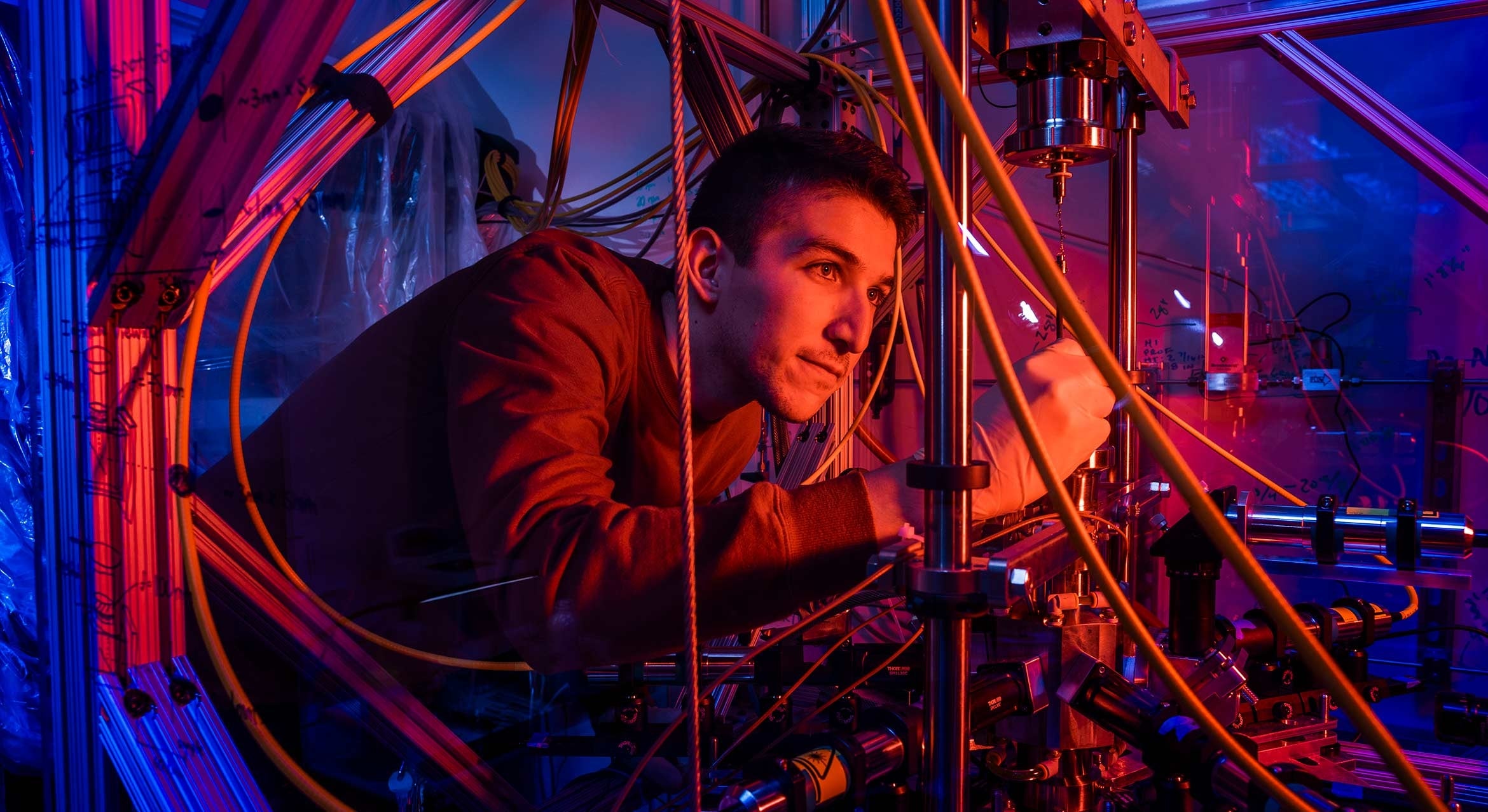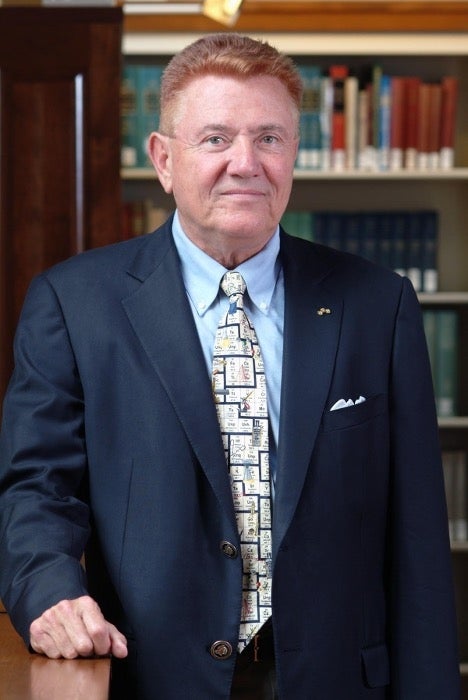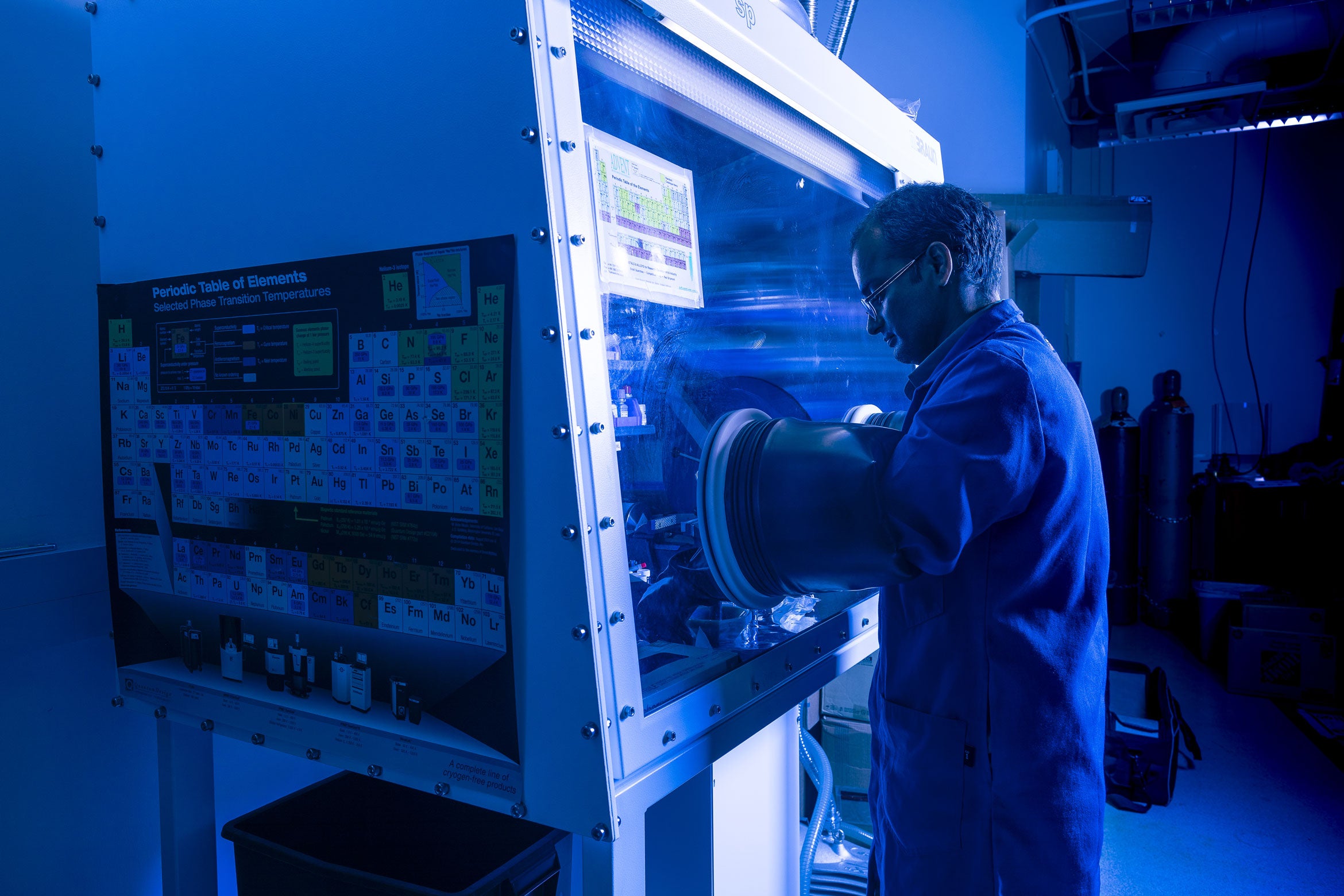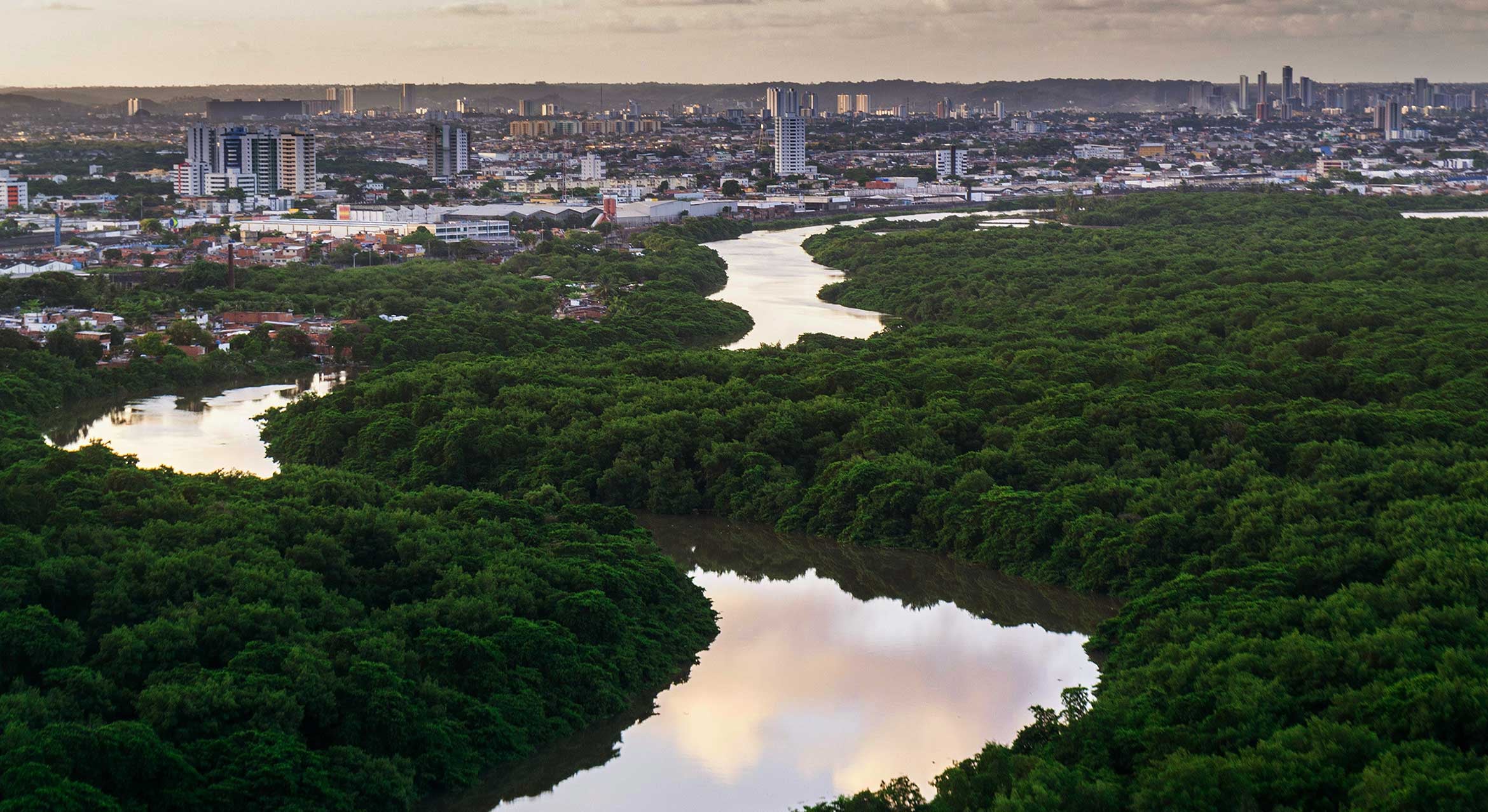
Advancing quantum science and nurturing aspiring scientists
The late chemist Roy T. Eddleman, founder and former CEO of Spectrum Labs, had a knack for bringing creative people together and cultivating a fertile environment for interaction and innovation. His company was just one example.
As a philanthropist, he later assembled the leaders of Caltech, UC Irvine and UC Santa Barbara as an advisory board for what came to be called the Eddleman Quantum Institute (EQI). Now a 501(c)(3) non-profit organization funded by Eddleman’s estate, the EQI is dedicated to promoting his vision: to revolutionize science and technology through interactive and collaborative quantum science, by way of this complementary combination of research universities. Roy passed away in 2022.
Starting in 2020 and into 2025, the trio of institutions has received a combined $64,725,000 for research, education, programs and operations in quantum science, all courtesy of Eddleman’s trust.
“Quantum science holds significant promise for humanity,” Eddleman said in 2021 of the motivation for his generosity. “To realize its fullest potential, we need to provide adequate support to the young scientists who want to pursue careers in this field.”
At UC Santa Barbara, which has received $21.5 million from the Eddleman trust, the EQI is a hub for pioneering quantum research. On a campus with proven expertise in quantum computing, quantum sensing, quantum optics and photonics, quantum dynamics and the development of novel quantum materials, to name a few, the institute hosts research from the fundamental — such as the discovery of new quantum phenomena — to technological innovation that harnesses the strange properties of quantum states in next-generation electronics.
“Roy Eddleman’s visionary philanthropy continues to shape the future of quantum science and engineering,” said UCSB Chancellor Henry T. Yang. “His remarkable generosity, and that of his trustees, is accelerating discoveries and advancing quantum innovation at UC Santa Barbara, further cementing our renowned leadership in quantum research, education and programs.

"I first met Roy in 2012, and over the following decade, he developed a special and meaningful relationship with our campus, meeting numerous times with myself, faculty and students, and visiting our labs,” Yang continued. “Our lives are richer because of his personal engagement, guidance, and support. Our campus is honored to be part of this transformative journey, along with Caltech and UC Irvine, and we remain deeply grateful to Roy for his enduring commitment to scientific excellence and impact.”
Eddleman believed firmly in the promise of graduate students — aspiring scientists — to advance the field in benefit to the world. To that end, a portion of his generous support is devoted to funding Eddleman Fellowships in Quantum Science. Since 2020, more than 75 graduates from three institutions — 25 at UCSB alone — have received fellowships to further quantum research.
UCSB physicists David Weld and Ania Jayich, with materials scientist Stephen Wilson, are at the forefront of this important and evolving field. Between them, they have expertise in ultracold atomic physics and quantum simulation, quantum sensing, quantum magnetism and unconventional superconductivity. Together, they serve as co-directors of UCSB’s newly founded Eddleman Quantum Institute, formerly the Eddleman Center for Quantum Innovation.
“We are very excited for the launch of this new institute, which aims to realize Roy Eddleman’s vision of coordinated and transformative advances in quantum science,” Weld said. “This initiative both leverages UC Santa Barbara’s particular strengths and builds connections to related efforts in California, a world center of research in this fast-moving field."
Perhaps Eddleman himself said it best.
“UC Santa Barbara has so many brilliant people, you can’t even begin to think of the possibilities of what they might discover, invent or find in the future,” Eddleman said of the campus in 2020. “UC Santa Barbara is one of the leading universities in the world who understands it better than practically everyone. What we need to do is find young, brilliant grad students and undergrads who are just deciding what they are going to pursue, and hopefully lure a lot of them into the quantum sciences, because it’s an incredible world there.”



